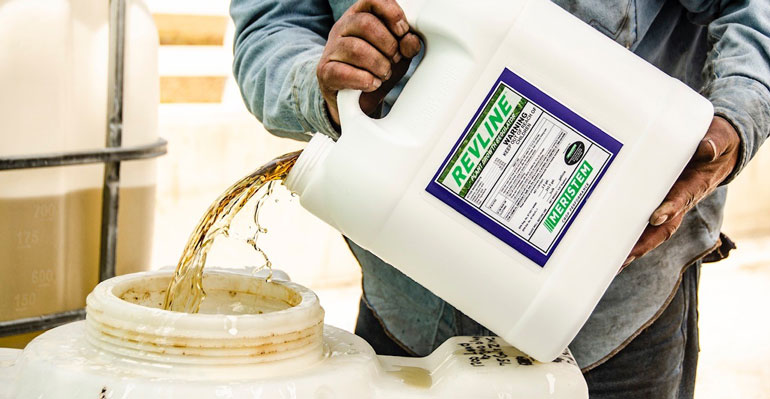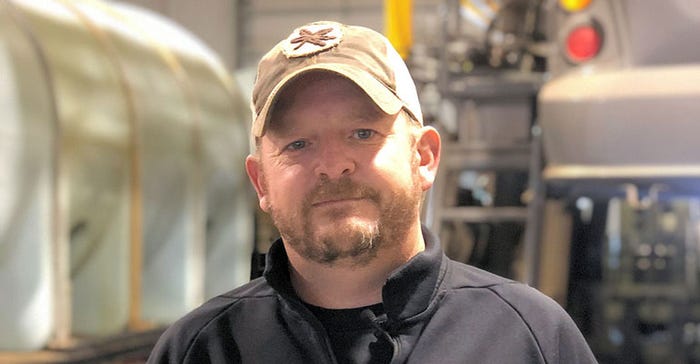
Meristem Crop Performance Group, LLC, a new crop input supply startup, aims to remove a big chunk of farmer costs for crop input additives by jumping over at least two steps in the input supply chain. For the growing number of larger farms who don’t need retail service for crop input additives, this could shore up some messy-looking crop budgets.
“We’re always looking for the best value for the investment cost,” says Todd McGuire, who grows 6,000 acres of corn and soybeans near Urbana, Ohio. “We saved 20% to 30% on the cost of crop additives like the nitrogen stabilizer we purchased from Meristem.”
Post-patent crop input additives, such as adjuvants, seed treatments, micronutrients, plant growth regulators, spray additives, drift control products and nitrogen stabilizers, are a $3 billion market traditionally sold by just five companies, says Rob McClelland, a principal at the new company.
“That cost represents just 6% of what farmers pay to put in a crop, but it’s a 60% margin for the companies that sell those products,” he says.
Traditional input channels include manufacturer, warehouse, distributor warehouse, retail, then the farm. “That’s environmentally inefficient and in every step, that channel takes another cut,” says McClelland. “So if you look at what farmers spend on inputs, about 40 cents of their dollar is not as efficient as current commodity prices demand. We’re trying to remove at least two steps in that chain and return that efficiency to the farm gate.”
Target: big farms
Meristem is targeting farm operations that would not need dealership service for these off-patent products.
“Our data suggests there’s a segment of farms – about 13,000 operations in 18 states - that already moved away from retail,” explains McClelland. “They really have the same infrastructure as small retail, with trucks, employees, heated warehouses, sprayers, and seed businesses. The farms that have decoupled their precision farming activities from where they get prescriptions or purchase inputs, that’s our fit. These farmers must leverage their scale and infrastructure to produce bushels for less money.”
The company spent last year pilot-testing on more than a half-million acres. The goal is to have sales on 3,000 farms in the next three years. McClelland says Meristem is “the first real direct-to-farm play, driven by people who understand logistics, transportation and generic products. We provide a vehicle for large farm business to buy these products in a way that reduces their costs and helps spur new income opportunities."
The ’new income opportunities’ come from Meristem’s ‘modified direct’ go-to-market approach. Farmer customers can become dealer partners. Since many big operations already have some kind of side dealership, Meristem execs see this as a way to help farmers add more income as they build out a network of customers.
“Getting trucks to every farm in neat pallet loads is really hard,” says McClelland. “We need farm businesses that meet certain criterion to help us. We will pay them to stage these products and help deliver products the final step. By adding the Meristem product line we can pass on a good margin, so it’s a good opportunity to diversify income.”

Meristem claims its business model is more than just the next e-commerce option for agriculture. “Buying direct through the internet is not really exciting and doesn’t create economic value,” says McClelland. “It might help with efficiency but if you’re a farmer, what you’re trying to do is create more output per unit input.
“In our opinion the real value creation in having large farm businesses get closer to manufacturers is the removal of two or three steps in the supply chain.”
Price transparency and competition
McClelland says Meristem is not looking to create a ‘battle royale’ with established dealers. “We clearly are trying to eliminate the public warehouse and distribution cost waste,” he says. “Quality service and information provided by retailers will always have a place.”
But he does believe some farmers will use Meristem price quotes to get local retailers to match.
“Price transparency is a good thing,” he says. “There will be a large percentage of those farms who leverage this published price to have the retailer reduce their costs. It’s just math.”
And he also believes there’s more change coming in how farmers buy inputs.
“The local traditional retailer, in order to keep this farmer’s business, might reduce his price and make it up in dry bulk N, P and K,” he predicts. “But, there is a gross amount of waste in my opinion that farmers are funding in the movement of macro crop nutrients. We don’t have a solution for that yet, but it’s starting to happen. That’s why you see farmers form buying groups and putting up their own dry fertilizer storage.”
Farmer customers will need to understand that Meristem is in the business of selling product, not service. Even so, the company responded quickly when McGuire needed them to.
“Not everything they have done as a startup has been perfect, but when we have any kind of issues they have been very good helping us work through it,” he says. “Even on a Friday afternoon we had trouble with the product flowing and mixing and they helped us with a solution.”
McClelland says the company does not sell herbicides, insecticides, fungicides or seed. “Those are the products that are generally guaranteed for resprays or replants,” he says. “Most of the products we sell are not novel and have been in the market for 20 years. Our current product line has traditionally had no patents, so why should a farmer pay a premium for a product category where there is no intellectual property? We’re passionate about creating transparency around this fact.”
Meristem “has been very good supporting us and the products have a good price point,” says McGuire. “That’s what we look for at the end of the day.”
About the Author(s)
You May Also Like






